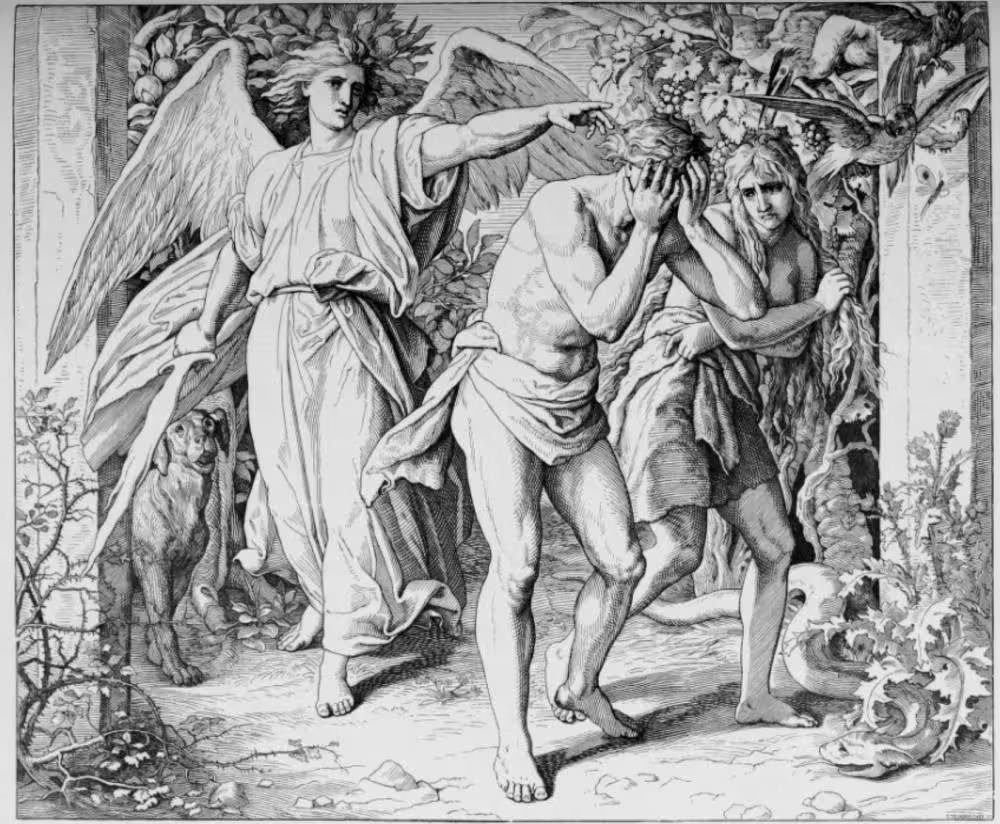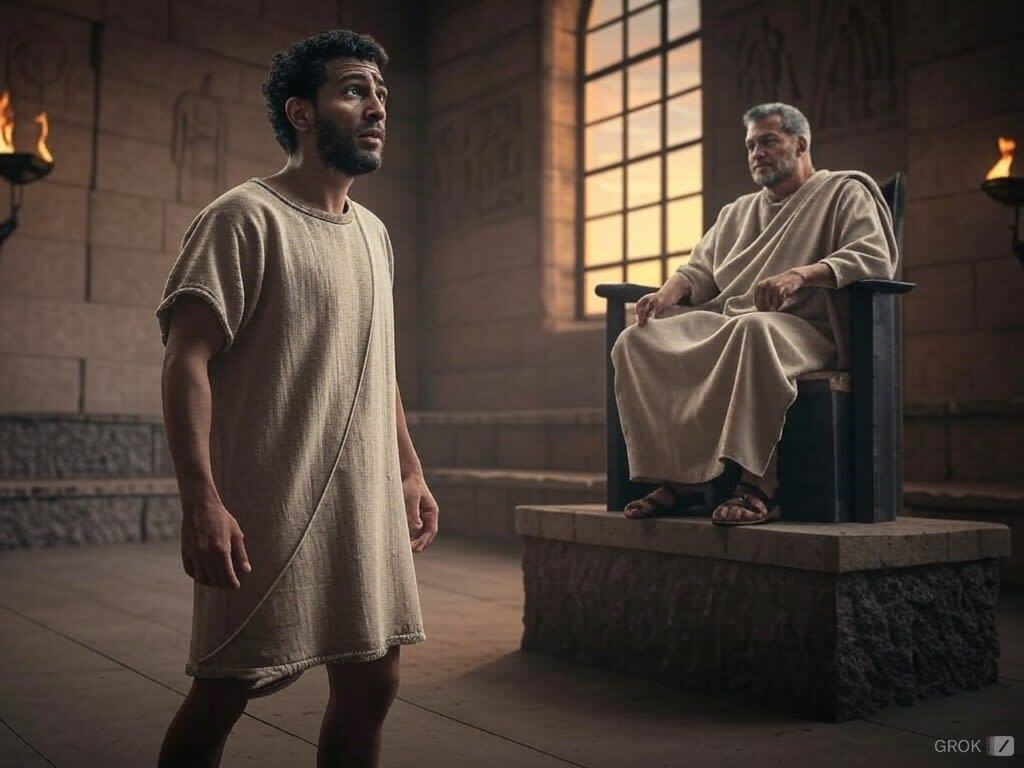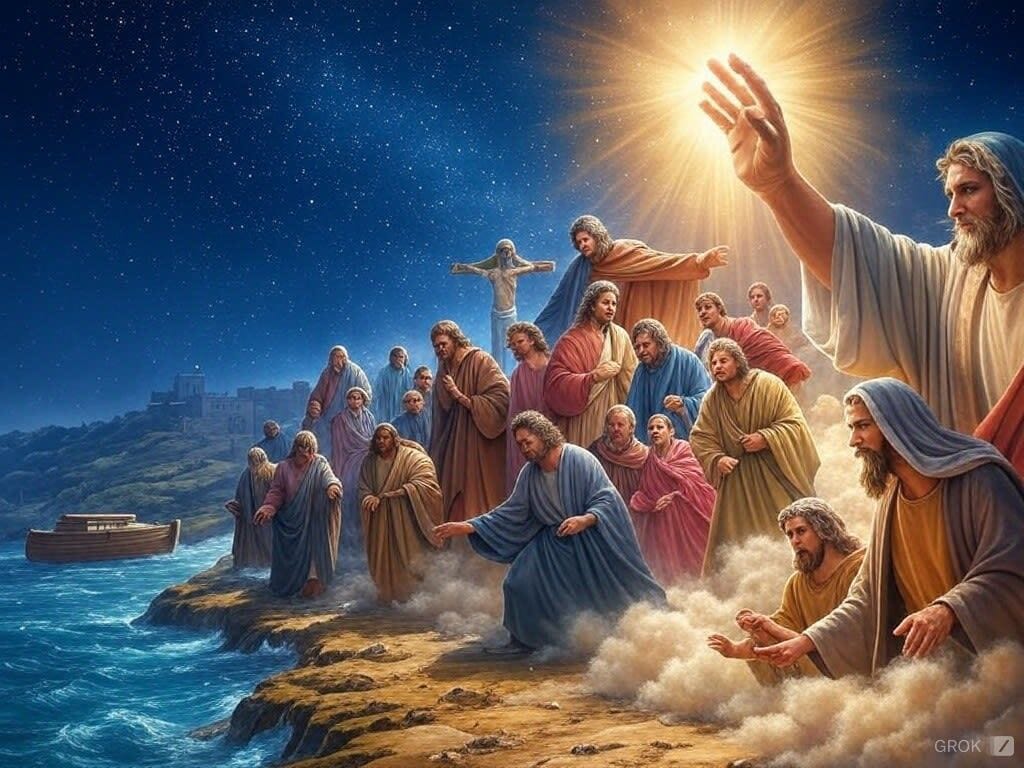What went wrong with the world? The Fall of Man answers that question. This Bible topic shows how sin crashed into humanity and changed everything. At Biblescholarship.com, we love unpacking these stories to help you see their meaning today. So, let’s dig into The Fall of Man—how sin started, what it cost, and why we need a savior to fix it.
The Fall of Man as Sin Enters the World
The Fall of Man kicks off in Genesis 3. Picture this: Adam and Eve live in Eden, a perfect garden. God gives them everything—trees, rivers, freedom. He adds one rule: “Don’t eat from the tree of knowledge of good and evil.” Simple, right? For a while, they obey.
Then, a serpent slithers in. He tempts Eve, saying, “You’ll be like God!” She bites the fruit. Adam joins her. Suddenly, sin enters the world. In other words, they disobey God’s clear command. As a result, that choice flips the switch—innocence turns to guilt. So, The Fall of Man marks the moment humanity picks self over God.
What’s sin? It’s rebellion against God’s way. Before this, Adam and Eve trust him fully. Now, they doubt and grab control. Consequently, The Fall of Man unleashes a ripple—sin spreads like a weed, tangling everything up.
The Penalty Hits Hard and the Fall of Man Begins
Sin doesn’t sneak in quietly—it brings a penalty. God shows up in Genesis 3:16-19, and the news isn’t good. First, Eve faces pain in childbirth. Next, Adam gets hard work and sweaty fields. Then, the big one hits: death. God says, “Dust you are, and to dust you’ll return.” Life ends now.
Why so harsh? Because God’s holy. Sin breaks his perfect order. For example, imagine a clean glass of water. Drop mud in—it’s ruined. Sin muddies humanity’s bond with God. Thus, The Fall of Man carries a cost: separation from him. Romans 6:23 sums it up: “The wages of sin is death.”
Plus, the penalty spreads. Nature groans—thorns pop up, animals fight. People hurt each other. For instance, Cain kills Abel in Genesis 4. The Fall of Man doesn’t just nick Adam and Eve—it scars the whole world. So, everyone feels the sting.
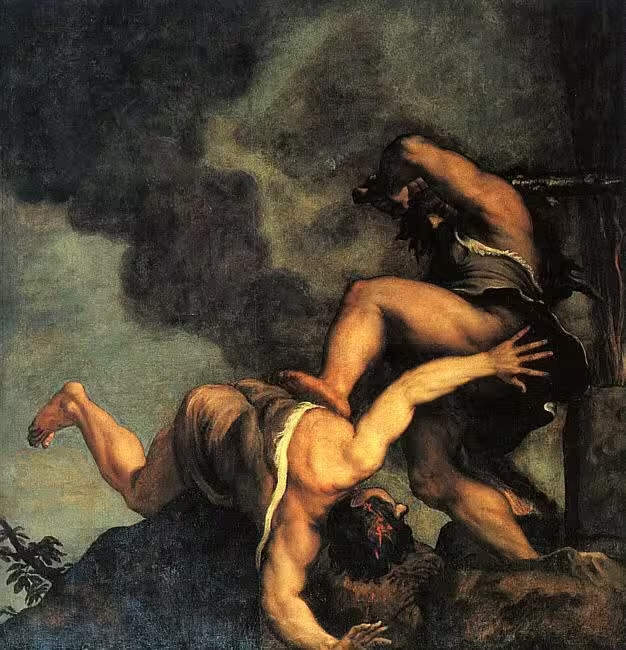
The Fall of Man Creates the Need for Atonement
Can we fix this mess? The Fall of Man says no—not on our own. Sin sticks to us. We lie, cheat, stumble. For example, you plan to help a friend but flake out. That’s sin’s echo. It’s too big for us to scrub clean.
Enter atonement. This means making things right with God. After The Fall of Man, humans try. In Genesis 4, Cain and Abel offer gifts to God. Later, Leviticus sets up sacrifices—bulls, lambs, blood. Why? Hebrews 9:22 explains: “Without blood, there’s no forgiveness.” Sin’s penalty demands payment.
Yet, these fixes fall short. Animal blood covers sin for a moment, but it doesn’t erase it. So, The Fall of Man leaves us needing more. We crave a perfect atonement—one that heals the break forever. Meanwhile, God hints at hope. In Genesis 3:15, he promises the serpent’s defeat. That’s the first whisper of a savior.
A Savior Steps In to Fix the Fall of Man
The Fall of Man sets the stage for a hero. Who? Jesus. The Bible calls him the answer to sin and death. For instance, John 3:16 says God sends his Son because he loves us. Jesus tackles what we can’t.
How? He lives perfect—no sin, no fall. Then, he dies on a cross. Romans 5:8 says, “Christ died for us while we were still sinners.” His blood pays the penalty from The Fall of Man. Unlike lambs, his sacrifice sticks. Hebrews 10:10 cheers, “We’re made holy through Jesus’ body, once for all!”
But wait—there’s more. Jesus beats death. He rises, proving he’s stronger than The Fall of Man’s curse. So, he offers atonement that works. Believe in him, and God forgives you. This sermon by Billy Graham illustrates the fall of man and how Jesus offers you salvation. Consequently, the gap closes—you’re back with God. At Biblescholarship.com, we shout this good news loud.
Why It All Connects
The Fall of Man ties sin, penalty, atonement, and savior together. First, Adam and Eve rebel. Then, death and pain roll in. Next, we see our need—atonement’s a must. Finally, Jesus arrives, fixing it all. For example, Romans 5:12-19 contrasts Adam’s flop with Jesus’ win. One brings ruin; the other brings life.
Plus, it’s personal. You feel The Fall of Man every day—anger, fear, mistakes. Yet, Jesus’ rescue hits you too. For instance, 1 John 1:9 promises, “If we confess, he forgives.” So, this story isn’t old news—it’s your story.
How to Dig Deeper
Want to explore The Fall of Man? Start with Genesis 3. Read it slow. What grabs you? The serpent’s trick? God’s words? Then, jump to Romans 3:23— “All have sinned.” See the link? Next, check Biblescholarship.com. We unpack these verses with easy steps.
For instance, trace “sin” through Scripture. It pops up in Psalm 51—David’s cry after a mess-up. Or try “savior” in Isaiah 53—Jesus’ suffering shines. Either way, The Fall of Man opens a treasure chest of truth. You’ll grow as you go.
Lingering Effect of the Fall of Man
How does The Fall of Man hit in 2025? Look around—chaos reigns. Wars flare, people hurt, nature struggles. That’s sin’s echo. For example, a friend betrays you—it stings. The penalty lingers. Yet, Jesus’ fix shines brighter. He offers peace now, hope forever.
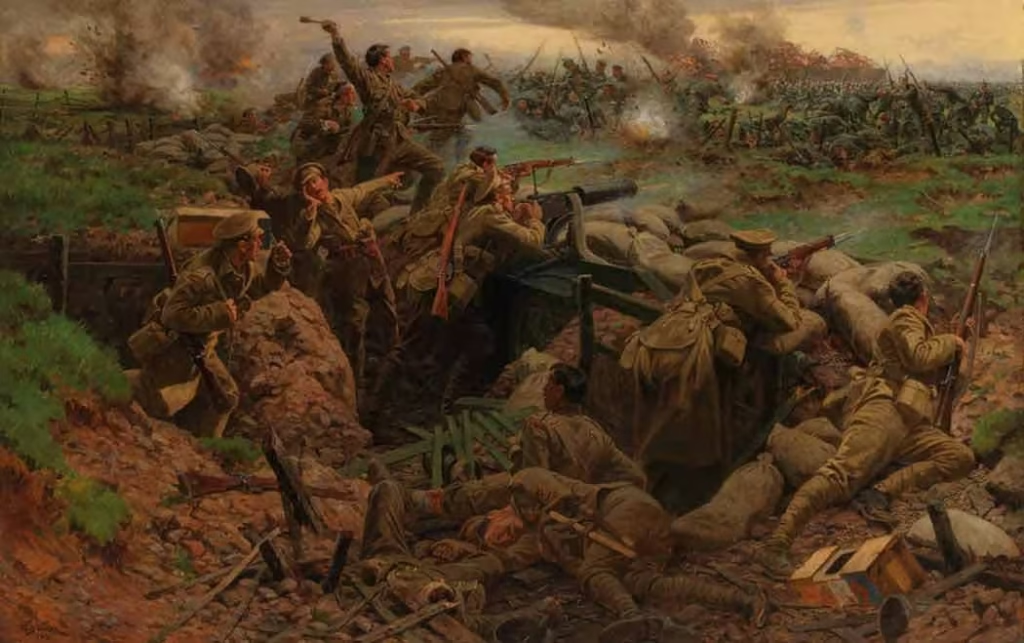
Plus, culture feels it. Movies about broken worlds—like dystopias—nod to The Fall of Man. However, they miss the savior part. In short, the Bible is the record of God’s work to redeem mankind. What makes Christianity different than other religions is that the God of the Bible wants a personal relationship with each person. From the beginning, He had a plan. Most important, we know that sin’s start led to Jesus’ victory. Consequently, you see the full picture—a busted world, a healing God.
The Hope We Gain
When you get The Fall of Man, hope blooms. Sin enters? Sure. Death bites? Yep. But atonement works, and Jesus saves. For instance, Revelation 21:4 promises no more tears—Jesus undoes the curse. That lifts you up.
Plus, it changes how you live. You mess up? Confess. You hurt? Trust Jesus. So, The Fall of Man isn’t the end—it’s the start of a comeback thanks to His atonement and grace. Above all, if we repent and turn to Him in faith then he is faithful and just to forgive us of our sins through salvation. Ultimately, it’s about a God who loves you enough to fix what we broke.
